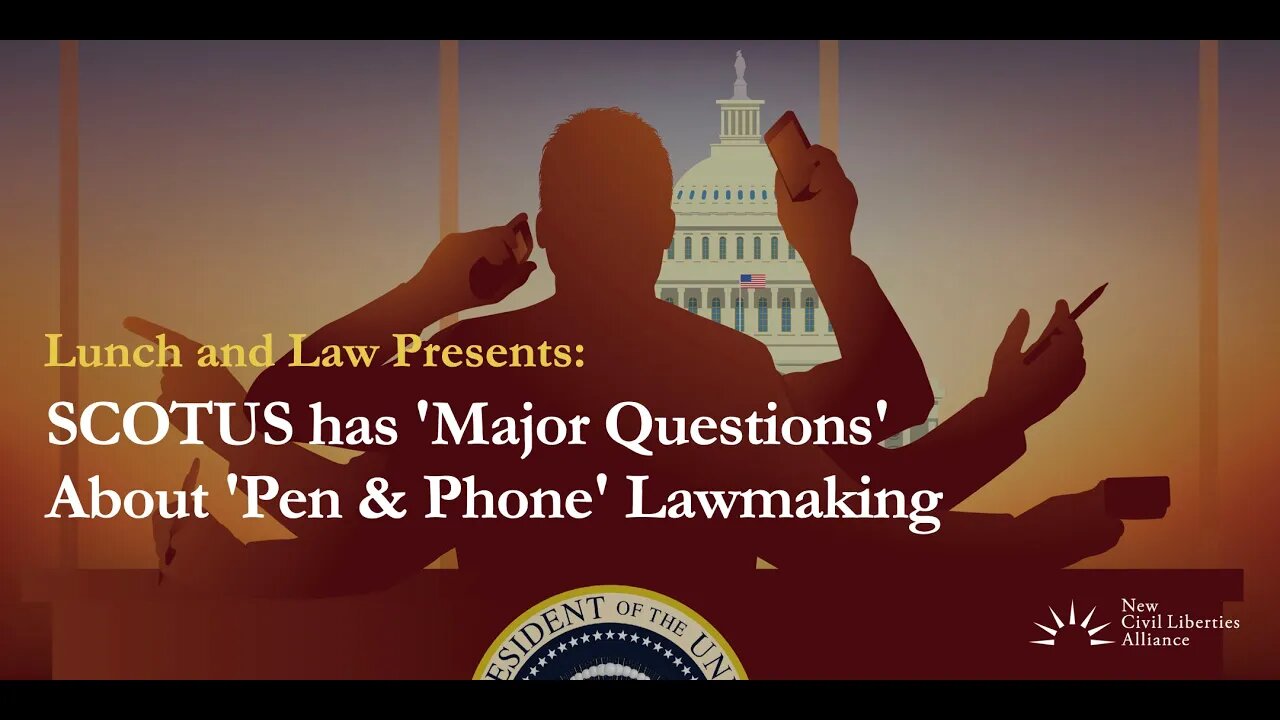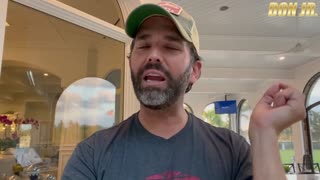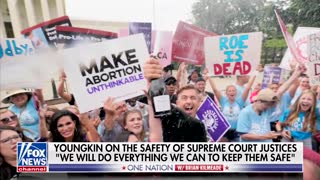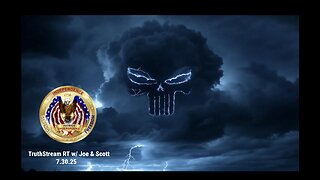Premium Only Content

SCOTUS Has 'Major Questions' About 'Pen & Phone' Lawmaking
In a blockbuster 6-3 decision on June 30, the U.S. Supreme Court rejected the Environmental Protection Agency’s claim of sweeping regulatory authority under the Clean Air Act in the case West Virginia v. Environmental Protection Agency. Invoking the “major questions doctrine,” the high court stated that EPA could not “point to ‘clear congressional authorization’” to devise carbon emissions limits that would shut down many power plants and reconfigure the entire industry.
NCLA agrees that EPA’s Clean Power Plan exceeded its statutory authority. But we are concerned that the major questions doctrine’s reasoning might be misused by lower courts to decide that Congress may divest its legislative power if it does so knowingly and expressly or on matters that are less than major.
NCLA President and General Counsel Mark Chenoweth moderates the discussion with NCLA Senior Litigation Counsel Rich Samp, who co-authored NCLA's amicus brief, and Jonathan Brightbill, of Winston & Strawn, who helped draft the repeal of the Obama-era rule at issue and then argued that portion of the case in the DC Circuit.
Website: https://nclalegal.org
Facebook: https://www.facebook.com/NewCivilLibertiesAlliance
Twitter: https://twitter.com/NCLAlegal
LinkedIn: https://www.linkedin.com/company/ncla-legal/
Instagram: https://www.instagram.com/nclalegal/
-
 1:43
1:43
New Civil Liberties Alliance
1 year ago $0.01 earnedMark Chenoweth at FedSoc Fireside Chat with FTC Chair Lina Kahn
871 -
 0:09
0:09
Danielle D'Souza Gill
3 years agoWarren Ignores Question About SCOTUS Bounties
392 -
 4:34
4:34
Donald Trump Jr.
3 years agoThe Sick Truth About SCOTUS And The Violent Left
8.71K251 -
 0:09
0:09
Terrence K Williams
3 years agoWarren SNUBS Reporter Asking Her About SCOTUS Bounties
68313 -
 1:40
1:40
Dailycaller
3 years agoWhite House press sec. Karine Jean Pierre speaks about SCOTUS
2.99K -
 0:33
0:33
AMERICA First with Sebastian Gorka
3 years agoGlenn Youngkin LIES about helping protect SCOTUS judges!
92917 -
 1:05
1:05
Danielle D'Souza Gill
3 years agoPro-Choice Radicals Are Not Happy About SCOTUS Decision
21 -
 1:05
1:05
Terrence K Williams
3 years agoPro-Abort Protestors Are VERY UPSET About SCOTUS Decision
90832 -
 2:47:03
2:47:03
Patriot Underground
19 hours agoTruthStream RT w/ Joe & Scott (7.30.25 @ 5PM EST)
35.8K24 -
 42:04
42:04
World2Briggs
16 hours ago $0.83 earnedRanking All 50 States By Natural Beauty Will Shock You!
3.43K1